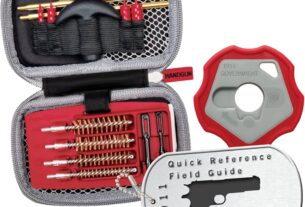Are you tired of struggling with traditional screws and bolts when working on your aerospace or motorsports projects? Look no further than the Dzus fastener tool! This specialized tool is designed to make fastening and unfastening Dzus fasteners a breeze, saving you time and effort in your work.
In this ultimate guide, we’ll dive into everything you need to know about the Dzus fastener tool. From its history and design to its benefits and usage tips, we’ve got you covered. So let’s get started!
History of the Dzus Fastener Tool
The Dzus fastener was invented in the early 1930s by William Dzus, an engineer who was frustrated with the time-consuming process of using traditional screws and bolts in aircraft construction. His invention revolutionized the industry, as it allowed for quick installation and removal of panels without requiring additional tools.
Over time, the use of Dzus fasteners expanded beyond aerospace to other industries such as motorsports, where they are used to secure body panels on cars and motorcycles. With this increased usage came the need for specialized tools to make working with these fasteners even easier.
Design of the Dzus Fastener Tool
The Dzus fastener tool is specifically designed to fit snugly over the head of a Dzus fastener, allowing for easy tightening or loosening. It typically consists of a handle and a socket that matches the size and shape of the fastener head.
There are several types of Dzus fasteners, each with their own unique shape. As such, there are also different types of Dzus fastener tools available to match these shapes. It’s important to ensure that you have the correct tool for your specific type of fastener in order to avoid damaging the fastener or the tool.
Benefits of Using a Dzus Fastener Tool
Using a Dzus fastener tool has several benefits over traditional methods of fastening. First and foremost, it saves time and effort in the installation and removal process. This is especially important in the aerospace industry, where every second counts and delays can be costly.
Secondly, using a Dzus fastener tool ensures that the fasteners are tightened to the correct torque, which is essential for safety and performance. Over-tightening can lead to damage or failure of the fastener, while under-tightening can result in loosening during use.
Finally, using a Dzus fastener tool reduces the risk of damage to the panel or surface being attached. Traditional screws and bolts require additional tools such as wrenches or pliers, which can scratch or dent the material. The Dzus fastener tool eliminates this risk by providing a snug fit directly on the fastener head.
Usage Tips for the Dzus Fastener Tool
When using a Dzus fastener tool, there are several tips to keep in mind to ensure proper usage and avoid damage. First, always ensure that you have the correct size and shape of tool for your specific type of fastener.
Next, make sure that the handle is securely attached to the socket before use. Loose handles can result in slipping or stripping of the fastener head.
When tightening or loosening a Dzus fastener, apply even pressure and avoid excessive force. Over-tightening can cause damage to both the fastener and tool, while under-tightening can result in loosening during use.
Finally, inspect your tools regularly for signs of wear or damage. Replace any damaged tools immediately to prevent further damage to your equipment or materials.
Conclusion
In conclusion, if you work in aerospace or motorsports industries, a Dzus fastener tool is an essential tool to have in your kit. Its time-saving benefits, torque accuracy, and damage prevention make it a valuable investment for any professional or enthusiast.
Remember to always use the correct size and shape of tool, apply even pressure, and inspect your tools regularly for signs of wear or damage. With these tips in mind, you’ll be able to work with Dzus fasteners efficiently and safely.
References:
https://en.wikipedia.org/wiki/Dzus_fastener
https://www.aircraftspruce.com/catalog/topages/dzustools.php
https://www.raceboltuk.com/dzus-fasteners-and-tools




